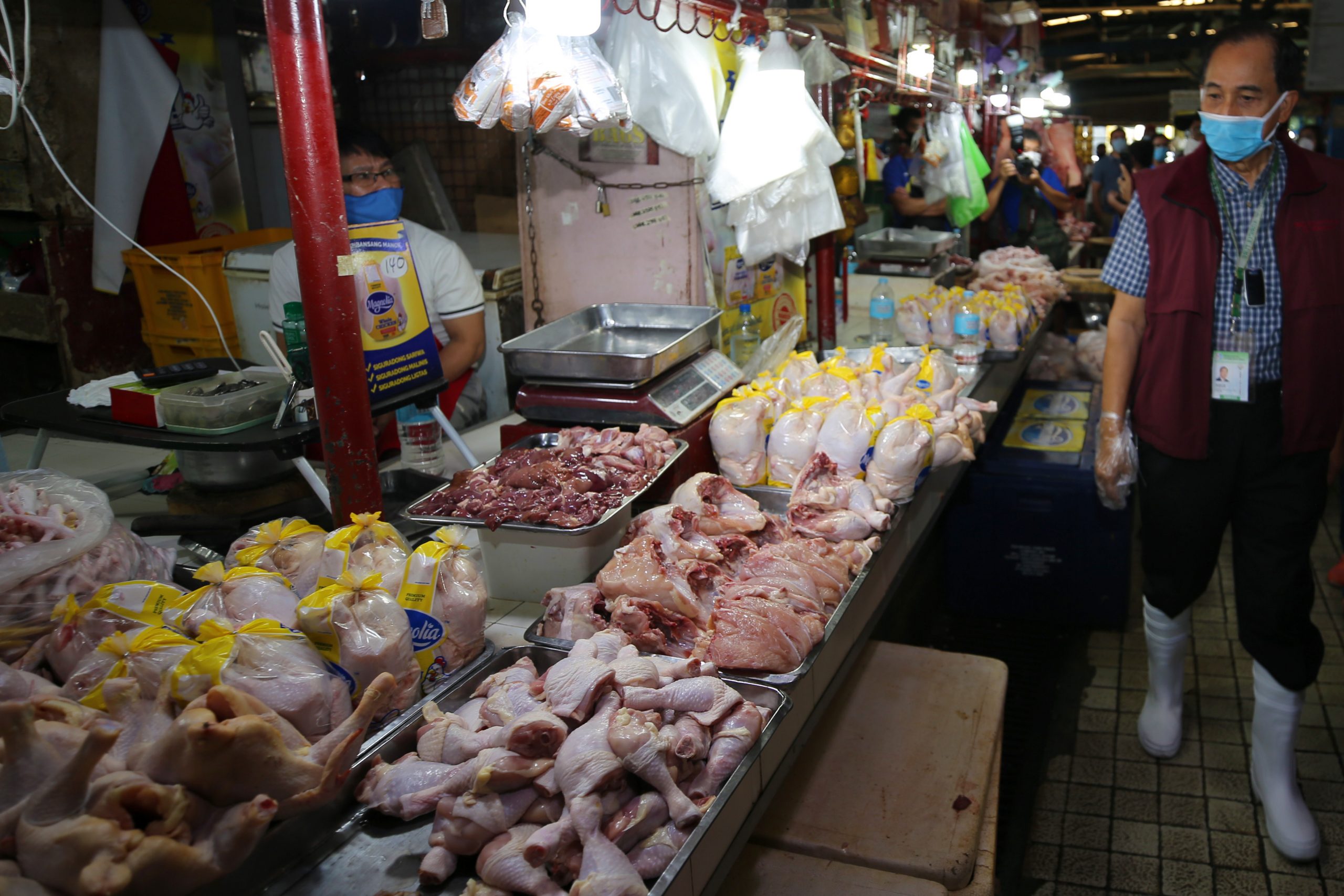
The Department of Agriculture (DA) says the observed decline in imported poultry meat and poultry products shows that local production is sufficient to satisfy national demand as the country continues to face economic and health threats brought about by the Covid-19 pandemic.
The DA’s Bureau of Animal Industry (BAI) reported that the volume of poultry meat imports declined by 23 percent (%), from 43,000 metric tons (MT) in January 2020 to 33,000 MT in May 2020.
Majority or 70% of total imports was composed of mechanically deboned meat (MDM), fats, offals, and rinds used by industrial processors, according to BAI’s National Veterinary Quarantine Services Division. MDM is used as raw material by meat processors and is not locally available.
“The imported poultry products are used by meat processing and manufacturing firms, and do not compete in the wet market, where our local producers bring their fresh products,” Agriculture Secretary William Dar said.
“It is the department’s commitment to raise the productivity of the country’s poultry sector. I have always emphasized our goal to increase local food production, poultry included. We will, in every step of the way, assist our local raisers in whatever way we can,” the DA chief added.
The DA will continuously boost the local poultry industry as it implements a national livestock program (NLP) under the bigger umbrella program, popularly called ‘Plant, Plant, Plant, Secretary Dar said.
The NLP is a multi-million-peso package to support the recovery of the country’s livestock and poultry industry, amid the COVID-19 pandemic, and ensure the production and supply of safe, affordable, and adequate food for Filipinos.
The lockdown implemented by the national government to stave off human-to-human infections of the dreaded Covid-19 virus since March this year has caused a downturn in the country’s socio-economic activities, including a decrease in demand of poultry products, resulting in oversupply, BAI Director Ronnie Domingo said.
“The lockdown has created tremendous trade limitations among producers, retailers, and consumers. There were partial operation or full closure of local businesses, causing loss of income of consumers,” Domingo said.
“Hence, we immediately looked into addressing the surplus in poultry supply. Related to this situation, the DA’s National Meat Inspection Service (NMIS) reported that aside from accredited cold storage facilities, excess meat is being stored in plug-in refrigerated vans which can be considered as food safety risk,” Domingo said.
It is for this reason, Secretary Dar said, that the DA-BAI-NMIS team is strengthening the system to secure the cold storage facilities and to prevent excess meat being stored in un-accredited systems.
“We understand the plight of the local poultry industry. That is why we have pursued constant dialogues with key industry leaders since the start of the imposition of the quarantine measures in the country,” Secretary Dar added.
As the regulatory arms of the DA on ensuring the safety of imported poultry products, the BAI and the NMIS are committed to exercise the full extent of the law based on their mandates to correct proven irregularities on the safety of the products that enter the country. However, “we have no jurisdiction over the volume, format, and type of meat to be imported,” Domingo said.
Amid the issues, the BAI has recommended strategic and operational plans to reinvigorate the local poultry industry. In the short term, the agency will advocate for the development of a new delivery system under the “new normal” as it continues to consult industry stakeholders.
Secretary Dar has called on the local poultry industry to work closely with the government.
“Let us find ways to ease the current problems besetting the sector due to the community quarantine restrictions and over-zealousness of some local government units that hinder free movements of farm inputs, equipment, products, and workers, including drivers, to and from farms to markets,” the DA chief said. ### (Myriam Layaoen, DA StratComms)













